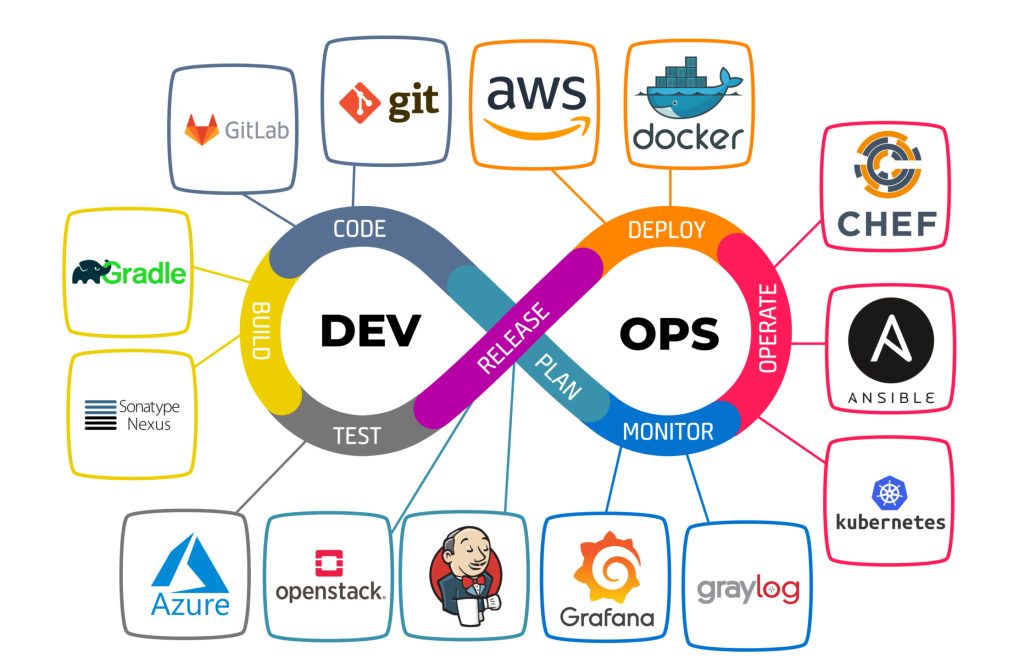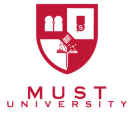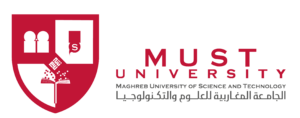Devops
⸺ Our 6-month DevOps certificate program is designed to help you master essential DevOps skills that are highly sought after in today’s job market. This program is based on the most relevant DevOps courses available on Coursera and is enriched with practical cases and personalized projects crafted by experienced instructors at MUST University.
You’ll learn foundational DevOps principles, concepts, and essential tools such as containerization using Docker and Kubernetes, Version Control Systems and Linux Shell Commands. You’ll also discover how to implement these technologies in an Agile Development framework, including Scrum. Then we will focus on advanced topics like Test Driven Development, Infrastructure as Code, and CI/CD automation. You’ll bring everything together by working on a hands-on project to apply these skills. Join us to gain expertise in the crucial DevOps tools employers are seeking and jumpstart your career in the dynamic field of DevOps. This program is your gateway to mastering these in-demand skills and starting a prosperous career.
Overview

This 6-month DevOps program from MUST University covers essential DevOps skills like Docker, Kubernetes, Git, and CI/CD. It combines Coursera content with hands-on projects for a prosperous DevOps career.
Program at a glance
- Format: Hybrid (Online + In-person).
- Languages: English & French.
- Duration: 6 months, with a flexible schedule.
- Start Date: Starts every quarter (Jan, Mar, Jun, Sep)
- Location: Online & MUST Campus, Lac 3, Tunis.
- Cost for Professionals: TND 2,800 (Eligible for TFP Refund).
- Cost for Students: TND 1,400 (50% Discount).
- International participants: 1400 USD
Why join this program?
- Official Competence & Recognition: Earn official proof of your expertise, gaining a distinguished achievement that sets you apart in the competitive IT landscape.
- Expanded Career Opportunities: Unlock a wider range of in-demand roles and advance your career within the rapidly growing DevOps field.
- Enhanced Problem-Solving: Develop strong proficiency in tackling complex IT challenges, from infrastructure automation to continuous delivery pipelines.
- Versatile & Transferable Skills: Acquire highly transferable skills applicable across various industries and technologies, making you a versatile and adaptable professional.
Outcomes
What you will learn?
- Master essential DevOps tools.
- Implement Agile and CI/CD.
- Gain hands-on project experience.
- Launch your DevOps career confidently.
Who is this program for?
- DevOps Developers: Translate business objectives to software.
- Individuals: Master DevOps, advance careers.
- Business Stakeholders: Drive tech-business strategy.
- IT Directors: Shape organizational IT strategy.
topics
Main topics
- Foundations of DevOps, Agile, and Cloud Computing.
- Software Development Tools & Practices (Git, Python, TDD/BDD).
- Modern Application Development (Containers, Microservices, CI/CD).
- DevOps Security, Monitoring, and Capstone Project
Instructor(s)
- Instructors (MUST University): Our faculty from MUST University includes academic experts and practitioners in DevOps, who contribute with their practical experience in cloud, CI/CD, and agile methodologies.
- Instructors (IBM): The program also features top instructors from IBM, recognized for their significant contributions and practical expertise in DevOps. These industry leaders bring invaluable real-world insights and cutting-edge practices to the curriculum.
Registration

